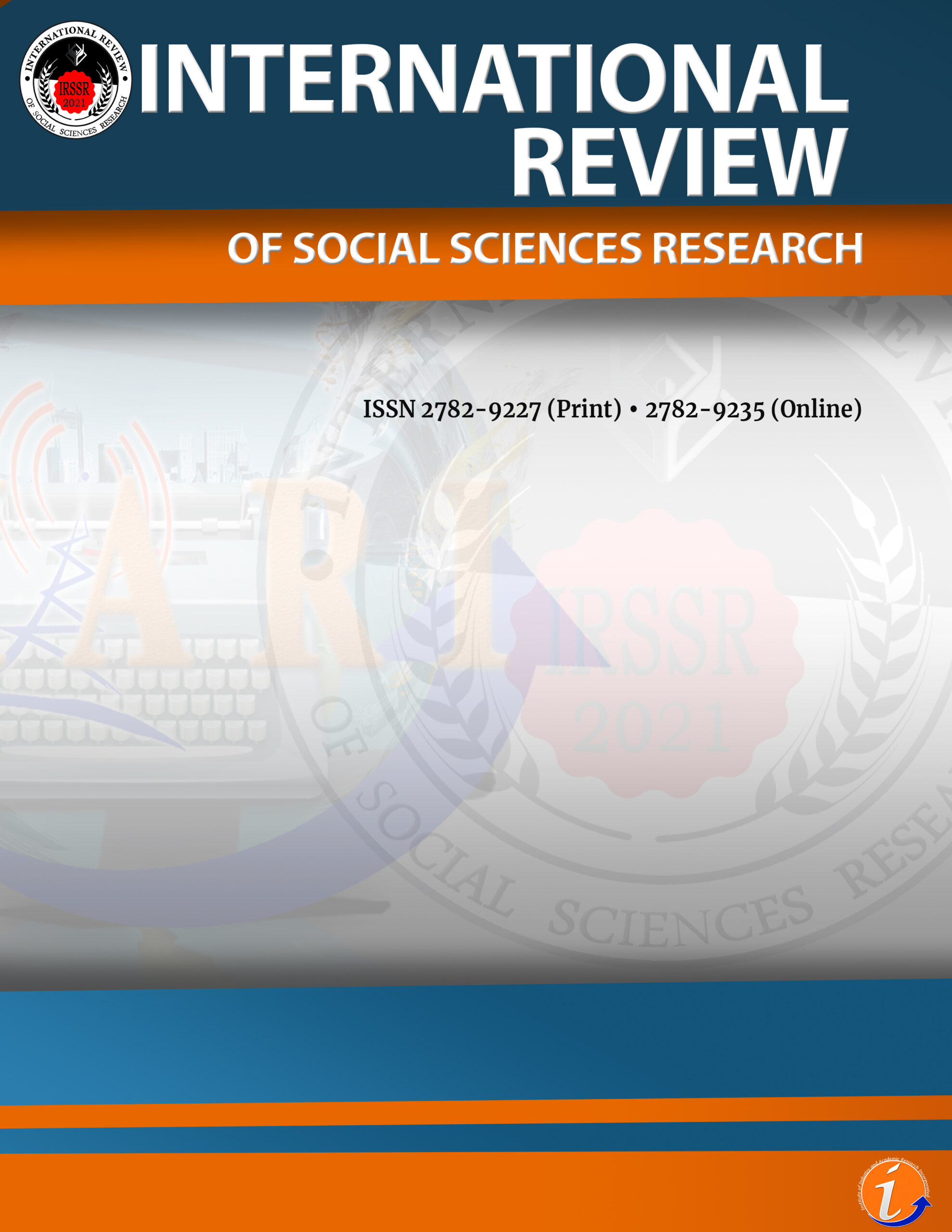The digital era has had a significant impact on people's perspectives, thus determining whether the vast reach of social media and its free access impacts Filipino teenager’s understanding of the issues in the country and their engagement in politics is crucial. The key aim of this study is to investigate the relationship between exposure to social media to the awareness on various social issues and the complex political involvement of youth. The study employed a correlational design of quantitative research approach use to analyze data gathered based on the conducted online survey of senior high school students from Tanauan City Integrated High School. In addition, this study applied a Pearson correlation to determine if a significant correlation existed. Findings showed that there is no significant connection between the respondents' social media exposure and their level of awareness regarding societal issues in the country. On the other hand, there is a significant relationship between the respondents' social media exposure and their level of radical involvement. This research demonstrates how a broader and more advanced understanding of youth’s radical political participation associated with more comprehensive measures of social media use can help better understand the role of digital platforms in influencing political participatory behavior and awareness among the internet generation. It is recommendable that future researchers could focus on a different aspect, highlighting the effects of specific social media platform to bring in-depth information about its implications to the political behaviors and awareness of youth in this particular variable.
awareness, politics, radical involvement, social media exposure, youth
Kenneth B. Ibardeloza, Louigie T. Badillo, Janna Mae H. Macatangay, Kharyl R. Dela Cruz & Myryl P. Malabanan. Students, Tanauan City Integrated High School
This paper is a finalist in the IIARI Research Competition (IRC) – 2021 Category 1 – High School
Ahmad, et al. (2019). The use of social media on political participation among university students: An analysis of survey results from rural Pakistan. SAGE Open, 9(3), 21. https://doi.org/10.1177/2158244019864484
Bakker, T. P., & de Vreese, C. H. (2011). Good news for the future? Young people, internet use, and political participation. Communication Research, 38(4), 451–470. https://doi.org/10.1177/0093650210381738
Bartoldes, B. (2007). Youth as agents for change. A documentation of the Friedrich-Ebert-Stiftung’s youth programs in Afghanistan, Pakistan and Sri Lanka. https://tinyurl.com/4bczbf92
Baumgartner, J. C., & Morris, J. S. (2010). Myfacetube politics: Social networking web sites and political engagement of young adults. https://doi.org/10.1177/0894439309334325
Breuer, A., & Groshek, J. (2014). Slacktivism or efficiency-increased activism? Online political participation and the Brazilian ficha limpa anti-corruption campaign. https://doi.org/10.4324/9780203361986-10
Chadwick, A., & Howard, P. N. (2008). Routledge Handbook of Internet Politics. Routledge. https://doi.org/10.4324/9780203962541
Chatora, A. (2012). Encouraging political participation in Africa: The potentials of social media platforms. Africa Portal. https://tinyurl.com/4hbmnjfr
Diamond, L. (2010). Liberation technology. Journal of Democracy, 21(3), 69–83. https://tinyurl.com/3fefyp89
Hampton, K. N., Shin, I., & Lu, W. (2017). Social media and political discussion: when online presence silences offline conversation. Information, Communication & Society, 20(7), 1090-1107. https://doi.org/10.1080/1369118X.2016.1218526
Kahne, J., & Bowyer, B. (2018). The Political Significance of Social Media Activity and Social Networks. Political Communication, 35(3), 470-493. https://doi.org/10.1080/10584609.2018.1426662
Keating, A., & Melis, G. (2017). Social media and youth political engagement: Preaching to the converted or providing a new voice for youth? The British Journal of Politics and International Relations, 19(4), 877–894. https://doi.org/10.1177/1369148117718461
Kemp, S. (2021). Global digital insights. Data reportal. https://tinyurl.com/48kn9h8d
Kim, Y., & Chen, H.-T. (2016). Social media and online political participation:The mediating role of exposure to cross-cutting and like-minded perspectives. Telematics and Informatics, 33(2), 320–330. https://doi.org/10.1016/j.tele.2015.08.008
Lamb, K. (2019). Philippines tops world internet usage index with an average 10 hours a day. The Guardian. https://tinyurl.com/bfbybysf
Lee, S. (2017). Digital democracy in Asia: The impact of the Asian internet on political participation. https://tinyurl.com/hzktvum6
Lim, N. (2009). Novel or novice: Exploring the contextual realities of youth political participation in the age of social media. Philippine Sociological Review, 57, 61-78. https://tinyurl.com/fdsrxrny
Mahin, N., Hamideh, G., & Fereshteh, G. (2017). Snowball sampling: A purposeful method of sampling in qualitative research. Strides Dev Med Educ, 14(3). https://doi.org/10.1007%2Fs10488-013-0528-y
McCombes, S. (2019). Correlational research | Definition, methods and examples. Scribbr. https://tinyurl.com/72rpbksk
Medina, M., & Diestro, J. (2009). The youth speak: Forms, facilitators and obstacles to their political participation. Philippine Journal of Psychology, 42(2), 291–313. https://tinyurl.com/byvbce5z
Milakovich, M. E. (2010). The Internet and increased citizen participation in government. eJournal of e-Democracy and Open Government, 2(1), 1-9. https://tinyurl.com/7smj3waf
Okoro, N., & Nwafor, K. A. (2013). Social media and political participation in Nigeria during the 2011 general elections: The lapses and the lessons. Global Journal of Arts Humanities and Social Sciences, 1(3), 29-46. https://tinyurl.com/4ucr4aa4
United Nations for Youth, World youth report on youth civic engagement (2016). Un.org. https://tinyurl.com/248nktx4
Velasco, D. (n.d.). Rejecting old-style politics? Youth participation in the Philippines. https://tinyurl.com/2vyznzhy
Wang, J. (2013). Pearson correlation coefficient. Encyclopedia of Systems Biology, 1671–1671. https://doi.org/10.1007/978-1-4419-9863-7_372
Yusingco, M. (2020). Social media and democracy in the Philippines. Griffith. https://tinyurl.com/brhmmfzc
Zúñiga, H., Jung, N., & Valenzuela, S. (2012). Social media use for news and individuals’ social capital, civic engagement and political participation. Journal of Computer-Mediated Communication, 17(3), 319-336. https://doi.org/10.1111/j.1083-6101.2012.01574.x
Cite this article:
Ibardeloza, K.B., Badillo, L.T., Macatangay, J.H., Dela Cruz, K.R. & Malabanan, M.P. (2022). Students' exposure to social media and their radical involvement on the societal issues in the Philippines. International Review of Social Sciences Research, 2(1), 47-60. https://doi.org/10.53378/352878
License:
![]()
This work is licensed under a Creative Commons Attribution (CC BY 4.0) International License.










